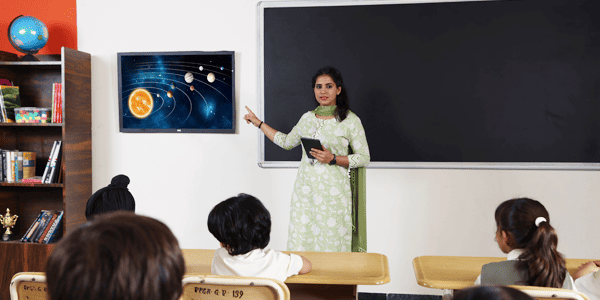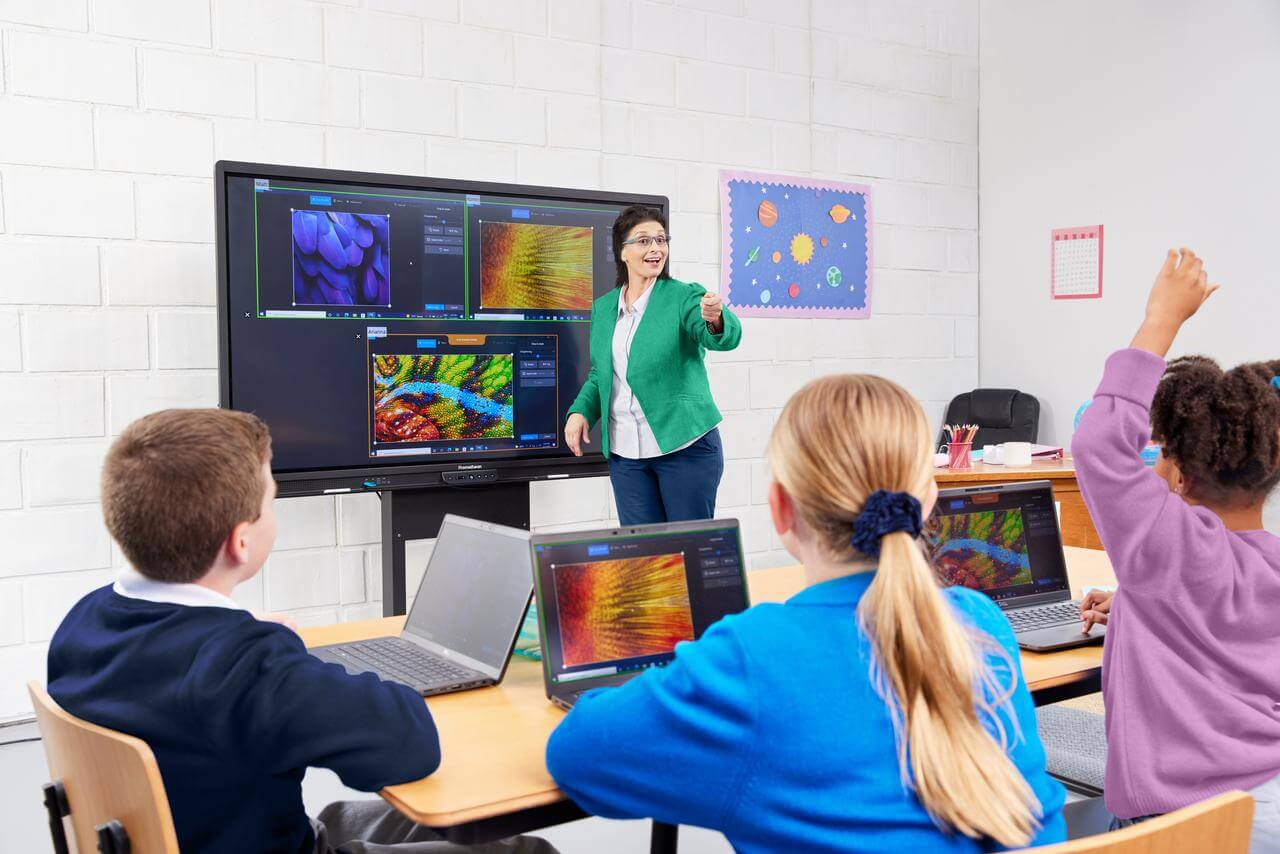Comprehensive Primary Science Tuition Singapore for Primary School Students
Comprehensive Primary Science Tuition Singapore for Primary School Students
Blog Article
Checking Out the Different Teaching Strategies in Primary Scientific Research Education Today
The landscape of primary scientific research education is developing, with numerous teaching strategies getting prestige in contemporary classrooms. Inquiry-based understanding, hands-on experiments, and the assimilation of technology are redefining exactly how instructors involve young minds. In addition, joint techniques and set apart guideline are being employed to cater to the varied needs of trainees, improving both involvement and understanding. As we analyze these techniques, questions occur about their efficiency and the ramifications for future instructional techniques. What might these changes in strategy mean for the next generation of students?
Inquiry-Based Understanding
Inquiry-Based Understanding (IBL) is a pedagogical technique that motivates students to explore clinical concepts with questioning, investigation, and hands-on experimentation. This approach highlights the function of trainees as active individuals in their discovering, promoting crucial thinking and analytic abilities. By engaging with real-world questions, pupils come to be interested and determined, which improves their understanding of scientific concepts.
In IBL, educators function as facilitators, directing pupils as they browse their queries rather than delivering details straight. This student-centered approach allows for distinction, fitting various finding out styles and paces. Students establish abilities in developing theories, creating experiments, and analyzing information, which are critical for scientific proficiency.
Furthermore, IBL fosters cooperation among pupils, motivating them to share concepts and findings. This cumulative inquiry advertises social skills and a feeling of community within the class. The procedure of inquiry urges durability, as trainees find out to accept failing as a stepping stone towards understanding.
Hands-On Experiments
Hands-on experiments are a crucial component of reliable scientific research education and learning, enhancing the concepts of inquiry-based knowing. These experiments enable pupils to engage straight with clinical principles, fostering a much deeper understanding through experiential discovering. By adjusting products and observing outcomes, young learners can realize abstract theories in tangible ways.
Such activities advertise essential reasoning and problem-solving skills, as trainees assume end results, conduct experiments, and analyze results. This process encourages them to ask concerns, fine-tune their understanding, and establish a scientific mindset. Hands-on experiments can be tailored to diverse understanding styles, guaranteeing that all trainees have the opportunity to engage meaningfully with the web content.
Furthermore, hands-on experiments typically motivate collaboration amongst peers, advertising teamwork and interaction abilities. Operating in groups allows trainees to share ideas, discuss searchings for, and find out from each other, which boosts their general educational experience.
Incorporating hands-on experiments right into the main scientific research curriculum not only improves the discovering environment however also grows a lifelong interest in scientific research. By proactively taking part in their education, pupils are more probable to develop a passion for clinical inquiry that expands beyond the class.

Modern Technology Combination
Integrating technology right into primary scientific research education and learning has become significantly essential in fostering student interaction and boosting learning outcomes. Making use of digital tools, such as interactive simulations, online labs, and academic software application, supplies trainees with possibilities to discover clinical principles in cutting-edge means. These sources facilitate a deeper understanding of intricate subjects by enabling learners to picture and adjust variables that would certainly be unwise in a standard classroom setting.
In addition, modern technology assimilation motivates customized learning experiences. Students can proceed at their very own speed, reviewing challenging ideas through multimedia resources, which satisfy various knowing styles. This adaptability not just sustains private growth yet pop over to these guys additionally grows a sense of freedom in learners.
Additionally, modern technology functions as a bridge to real-world scientific research, linking students with existing research study and specialist payments. Access to scientific journals and online data sources expands pupils' viewpoints on scientific questions and promotes important thinking skills.
Collaborative Learning
Collective learning plays a crucial role in primary science education by fostering synergy and communication skills among pupils. This technique encourages learners to interact, share understanding, and participate in analytical, which improves their understanding of scientific principles. By participating in team tasks, trainees learn to verbalize their concepts, listen to diverse viewpoints, and negotiate options, every one of which are necessary abilities in both real-world and scholastic contexts.

Research study shows that joint learning can cause increased inspiration and engagement in science subjects, as trainees find pleasure in shared experiences (primary science tuition Singapore). Furthermore, this method prepares pupils for future collective ventures, furnishing them with the abilities necessary for efficient team effort in college and specialist environments. Inevitably, welcoming joint discovering in key scientific research education can dramatically enrich the knowing experience and promote a deeper understanding of clinical inquiry
Set Apart Guideline
Distinguished guideline can materialize in numerous methods, such as differing the material, procedures, or items of knowing. For circumstances, teachers may use tiered tasks that offer differing degrees of intricacy, permitting trainees to operate at their corresponding readiness levels. In addition, versatile organizing techniques can promote partnership among students with various capacities, cultivating peer discovering.
Evaluation plays a crucial role in this strategy, as it informs instruction and helps teachers comprehend each student's special needs. Developmental analyses, such as observations and quizzes, can assist instructors in adjusting their methods to boost discovering results. primary science tuition Singapore. Inevitably, by executing set apart direction in key scientific research education and learning, teachers can cultivate a more effective and fair knowing setting, encouraging all trainees to reach their complete potential in understanding clinical phenomena
Verdict
In summary, the varied mentor approaches in main scientific research education, consisting of inquiry-based knowing, hands-on experiments, technology combination, collective discovering, and separated guideline, jointly add to an extra reliable understanding environment. These approaches promote important reasoning, analytical skills, and a much deeper comprehension of clinical principles. By executing these methods, instructors can produce helpful and interesting class that address the diverse needs of students, eventually cultivating a long-lasting passion in science and improving academic success.
Inquiry-Based Knowing (IBL) is a pedagogical technique that motivates students to discover clinical ideas via wondering about, examination, and hands-on trial and error.Collaborative learning plays an essential function in key science education by cultivating teamwork and communication skills among pupils.Research indicates that collaborative understanding can lead to boosted inspiration and visit involvement in scientific research subjects, as pupils discover enjoyment in common experiences.In fostering an inclusive discovering setting, set apart direction arises as a crucial technique to fit the varied demands and capabilities of trainees in main scientific research education and learning. Inevitably, by implementing set apart direction in main science education, instructors can grow a more fair and efficient discovering atmosphere, equipping all students to reach their complete capacity in recognizing clinical phenomena.
Report this page